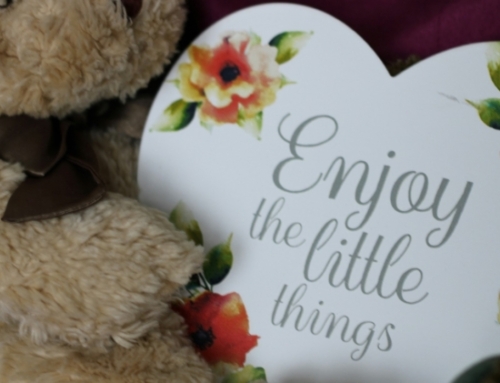Romantic relationships are supposed to be enjoyable. But in reality, many relationships are very stressful. Further analysis reveals that there are three common communication styles in dating and relationships:
-
Three typical communication styles:
Communication Style 1: Submissive
A submissive person tends to hide their feelings and thoughts. They behave in a very passive manner. Without showing how they actually feel, they usually become depressed, upset or even resentful. When it comes to the dynamics in a romantic relationship, the submissive person often gets their partner to make big decisions on their behalf. Sadly, this just makes them less empowered (& more hopeless).
Communication Style 2: Assertive
Truthfully, this is the healthiest style because it’s the ideal way to interact with people. Yes, when two individuals share their thoughts and feelings respectfully and honestly, they can truly support each other and build a sustainable relationship. Both people are effective listeners and can understand each other if two people in a relationship have an assertive communication style.
Communication Style 3: Aggressive
People who have this communication style assert themselves in a very powerful way (oftentimes too powerful). A person like this dominates conversations in a relationship. At times, this is actually a way to mitigate their insecurity, uncertainty as well as inner fear. If two people in a romantic relationship both have this style, it’s probably impossible for this couple to be together forever.
Note that some people are passive-aggressive, which is even worse, because a passive-aggressive communication style is very tricky – you don’t even know what they are really thinking of at all and they make you feel terrible. A passive-aggressive style in a relationship literally depletes the trust. A lot of people are involved in affairs, financial infidelity as well as revenge spending – further examination shows that their passive-aggressive communication style is the root cause of those problems. In other words, their issues are the symptoms of their long-term problematic communication.
Ideally, everyone should be assertive. But realistically, a large number of individuals are either submissive, aggressive or passive-aggressive. It doesn’t necessarily mean many people are evil; it only means not everyone knows how to communicate with their partners effectively because communication in your love life isn’t a subject which was taught at school or university. Therefore, if you think you aren’t the best communicator, it’s not your fault. You only did what you could with what you knew at that time.
-
Communication and financial identity in dating and relationships:
Saver VS Spender
If you know how much money you have in the bank and in your wallet right now, calculate how much money you’ve spent every month and only buy clothes that are on sale, you are possibly a saver.
In contrast, if you can’t resist the temptation of fine wine and scrumptious food in an upmarket restaurant, can’t stand living a life without a fancy car and certainly can’t remember where you spent that $100 in your pocket, then you are probably a spender.
That being said, most people are somewhere in between, but a lot of individuals definitely go to extremes easily.
Assessing your financial identity
No, this isn’t about judging you at all. This is all about finding out who you really are when it comes to financial management so that you can improve your financial situation.
No matter you are a saver or a spender, your financial identity doesn’t make you better or worse as a person. Truthfully, either identity could cause issues if it is not properly managed.
Realistically, talking about managing personal finances well, savers have more advantages. However, it doesn’t necessarily mean spenders are hopeless. It only means spenders would be well-advised to exercise some self-control while living a wonderful lifestyle.
What do savers and spenders need to work on in dating and relationships?
A true saver might have to learn how to enjoy life by striking a balance between brutal frugality and a crazy shopping spree. At the end of the day, you still need to treat yourself, right?
Nevertheless, a spender should totally work a bit harder because there are just too many things to buy these days – we are bombarded with advertisements everywhere! From now on, you can try buying what you need rather than what you want, okay?
Also, finding out your partner’s financial identity can help you with your personal finances as well. 😊
-
What is emotional spending in dating and relationships?
Okay. I’ll use plain English to explain this: Emotional spending means a person’s spending behavior is significantly influenced by emotions, feelings and moods. Well, no, you can’t predict your future emotions when you and your partner are making your budgets, but you can certainly find a way to prevent retail therapy from happening, right?
Examples of emotional spending:
1) When you feel unhappy with the way you look, you want to buy some new clothes that you assume would make you feel better about your appearance.
2) When you feel unhappy with the stress at work, you would buy an expensive coffee on your way to the office every morning while thinking “I totally deserve this”. In this way, you feel a bit better about the situation in the office.
3) After working very hard for a week, when you and your partner feel so tired on Friday, you just go to an upmarket restaurant and then go to the movies, thinking you should treat yourselves now.
How to overcome emotional spending in record time:
First of all, you can find some alternative activities that give you joy. Instead of spending money whenever you are upset, you may find an inexpensive alternative which will make you feel good. How about dancing to the music and going for a walk in the park?
Second, you need to set a budget for unnecessary purchases. By that I mean you still need to have some play money, i.e. yes, you can treat yourself, but it’s done in a controlled way so you won’t feel guilty after splurging on yourself. Actually, treating yourself in a relatively small way could help you stop buying something more expensive, e.g. instead of buying a new outfit, you will buy some chocolate!
Last but not least, perhaps you and your partner can become each other’s accountability buddy – just support each other so that you will achieve your financial goals faster.
-
Can different habits in a relationship lead to normal spending?
In a relationship, when one person is a spender and the other person is a saver, money becomes the elephant in the room. This is sad but true.
Find out your money values.
Here is a typical example which explains money values clearly:
Eating out and going overseas for holidays could be someone’s way of showing how much they are in love with their partner. But the other person may think cooking dinner at home together is a much more relaxing activity. When these two people are in a relationship, their very different values determine their different habits, so sooner or later, money will become an issue. So, they need a happy medium.
“The fastest way to erode trust in a relationship is to argue about money or lie about money. Therefore, you have to be honest with each other about your financial situation from the beginning. I recommend not spending beyond your means while dating simply to impress your partner, because if you look more generous than who you really are, this behavior will be expected later on, and it’s almost impossible to undo what’s already been done.”







[…] other words, a great relationship should make you feel really good 80% of the time and only 20% of the time you feel average. It’s okay to feel irritated […]